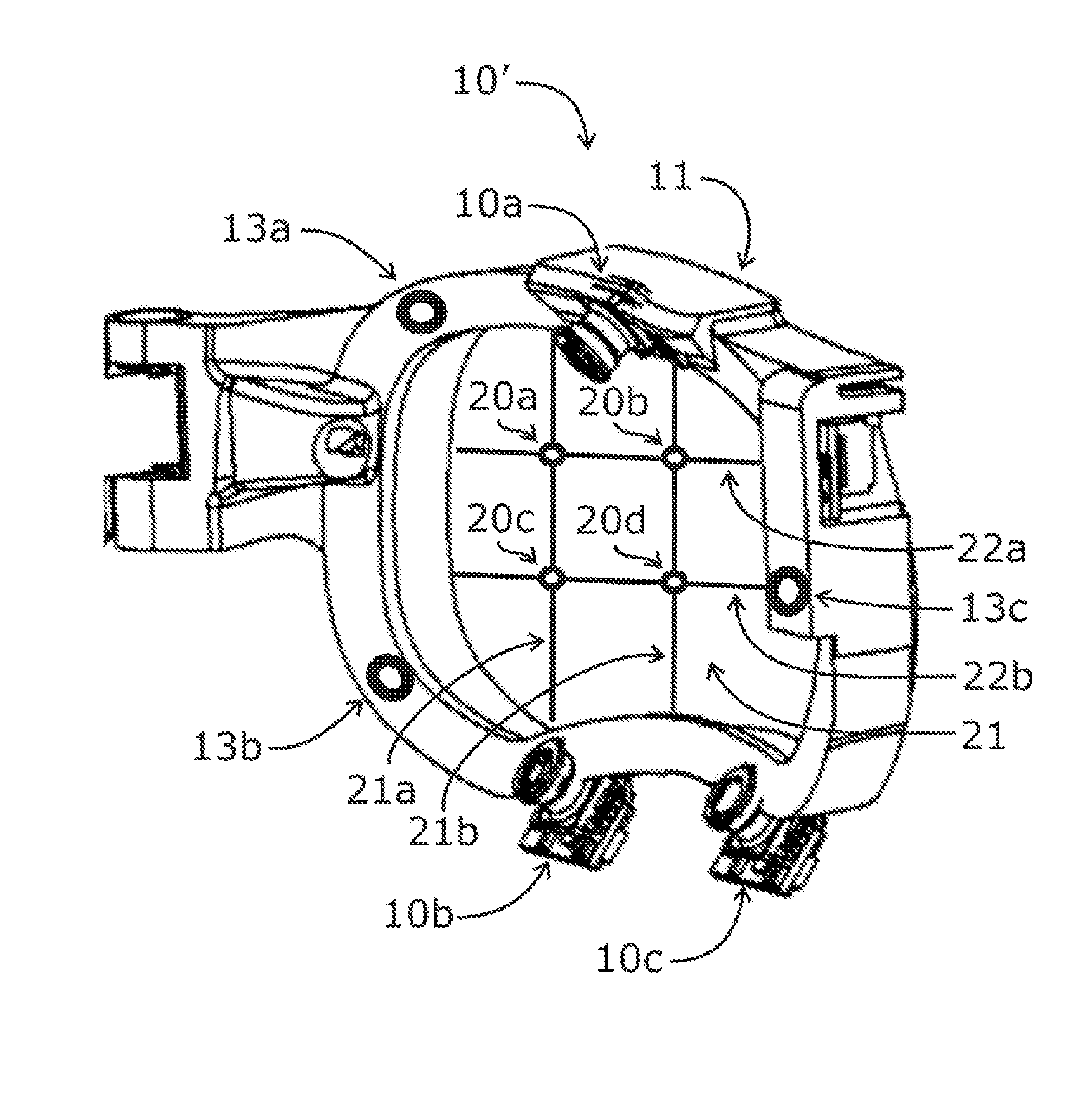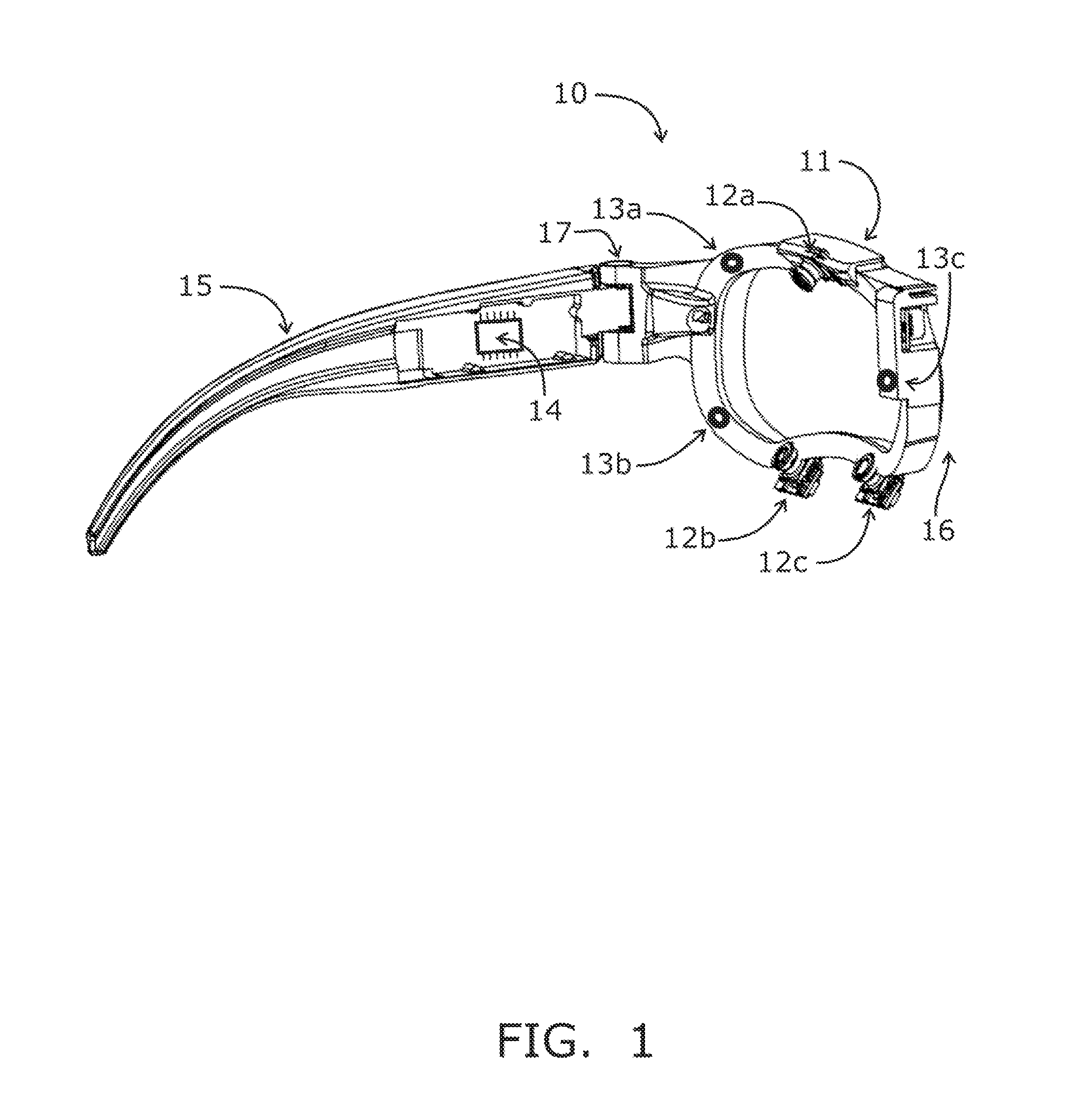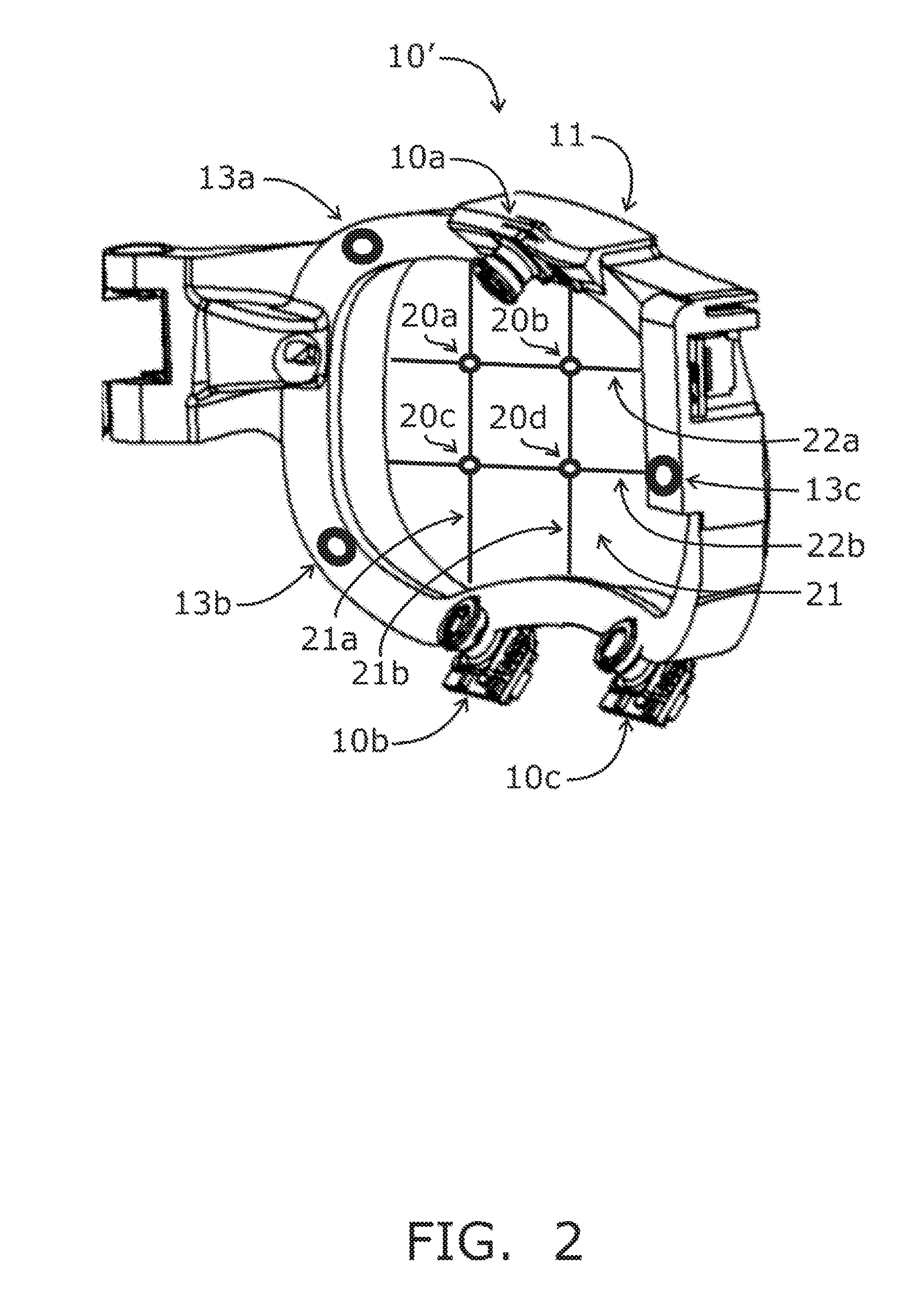Systems and methods for high-resolution gaze tracking
a gaze tracking and high-resolution technology, applied in the field of systems and methods for high-resolution gaze tracking, can solve the problems of incomplete loss, distortion in the ability to accurately track a pupil or other reference location, and loss of glints and even overall illumination from illumination sources, so as to achieve the effect of being easy to determin
- Summary
- Abstract
- Description
- Claims
- Application Information
AI Technical Summary
Benefits of technology
Problems solved by technology
Method used
Image
Examples
Embodiment Construction
[0048]Turning to the drawings, FIG. 1 shows an exemplary embodiment of a system 10 including an eyeglass frame 11 with three eye-tracking cameras 12a, 12b, 12c directed at the left eye (not shown) of the device wearer. Also directed at the left eye of the device wearer are three illumination sources 13a, 13b, 13c, in this case, mounted on the eyeglasses frame 11. Images collected by the eye-tracking cameras 12a, 12b, 12c are sent to a processing unit 14. In this exemplary embodiment, the processing unit is mounted within the left stem 15 of the frame 11 and coupled to the cameras 12a, 12b, 12c. Optionally, to distribute weight more evenly within the eyeglass frame 11, a power source (e.g., battery, not shown) and / or other electronics may be encased in the stem of the eyeglass frame 11 opposite that containing the processing unit 14 (not shown).
[0049]The processing unit 14 may also include memory for storing image signals from the camera(s) 12a, 12b, 12c, digital filters for editing ...
PUM
 Login to View More
Login to View More Abstract
Description
Claims
Application Information
 Login to View More
Login to View More - R&D
- Intellectual Property
- Life Sciences
- Materials
- Tech Scout
- Unparalleled Data Quality
- Higher Quality Content
- 60% Fewer Hallucinations
Browse by: Latest US Patents, China's latest patents, Technical Efficacy Thesaurus, Application Domain, Technology Topic, Popular Technical Reports.
© 2025 PatSnap. All rights reserved.Legal|Privacy policy|Modern Slavery Act Transparency Statement|Sitemap|About US| Contact US: help@patsnap.com



